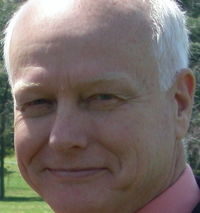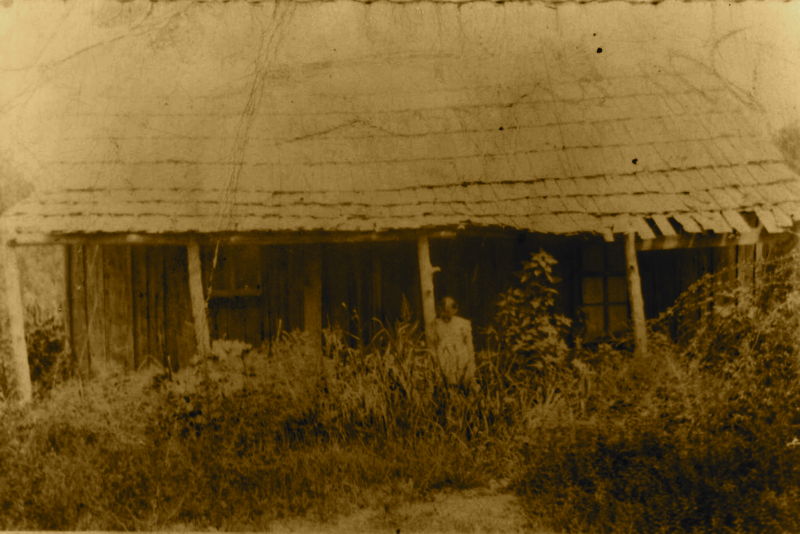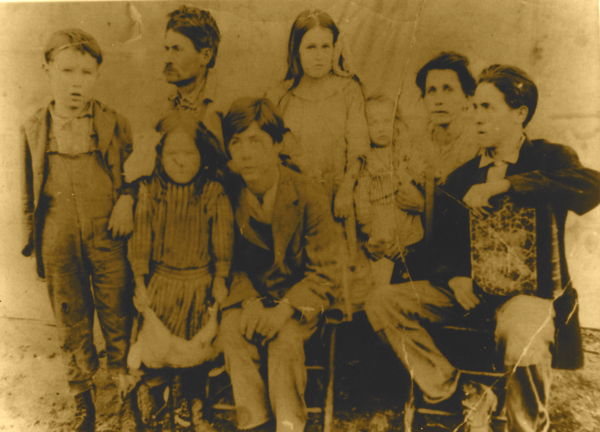
The following article by David Strange originally appeared in The Courier-Journal on 27 Feb 2013. It is archived here with additional information for your reading enjoyment.

Allow me, please, this Easter Week, to share a personal story that might well touch memories of your own family past. I know that for many years it has caused Easter Sunday to mean something more to me in addition to its obvious Christian importance.
Perhaps it will to you as well.
You see, on Easter Sunday, way back in 1942, my father, who was just a boy then, was moving to Louisville with his parents and siblings in search of a new life.
One of my father's earliest childhood memories was watching the family's last cow being taken away as the family farm was being sold off during the Great Depression. Like so many others of that time, his experiences in the Depression shaped much of what he would become as an adult.
The Great Depression broke many people; caused some to enter a destructive life of crime or despair. But others became deeply determined to work doubly-hard to create an honest and respectable living that would not let such poverty ever touch their family again.
Dad was, is, such a man.
Things were very tough when Dad was a boy. He remembers the old farmhouse being in such bad shape that he could see through the cracks of the floor to the ground below. This was before electricity had gotten to their part of the country, and they might not have been able to afford it if it had. In the winter, he remembers the house being so cold that when he would wake up in the mornings, the pitcher and bowl of water in his room would be frozen.

Though there were many good people around, there were also some very bad. Dad remembers at one time the preacher at his tiny little country church actually kept a revolver at the pulpit while he preached, lest ruffians would come in and cause trouble.
Even the church boys couldn't resist some mischief. Sometimes, especially in warm weather, people would hang around outside during the service, listening (or not) through the open windows. Once, while the pastor was preaching, one of the boys picked up a walnut from the ground. Yielding to a boyhood temptation, the boy walked up to the open church door, and gave the walnut a sling, hitting the pastor right on the forehead like King David of old! I imagine that brought the service, and the boy's day, to an abrupt conclusion.
Even though they were poor (nearly everyone was poor in that community in those terrible days), Dad's parents would still take their turn having people over for Sunday dinner after church. Dad remembers one of those Sundays, a couple of years before they had lost the farm, when everyone at Sunday service came over to the house. His mother was busy cooking up what little they had. There wasn't much, and "Ma" was probably doing the best she could to make it last. Dad, a small boy at the time, was excited about the grand affair, smelling the wonderful foods that the family so rarely was able to enjoy.
He could hardly wait to eat.
Though he and the other young kids probably did not realize it, Ma was having trouble. No matter how she stretched it, there was not going to be enough food to go around. All that the kids knew was that there was going to be some unusually good food that day.
Then something happened that became one of those life events that matters the rest of your life. Ma called the seven young kids to the kitchen. She gave them each what Dad recalls as "an old cold potato," and told them to go outside in the woods and lay low until the festivities were done.
No doubt, Dad's parents were doing the best they could in a bad situation, but what Dad remembers is that old, cold potato, compared to the wonderful smells coming from the house. I think that event, more than most anything else in his life, made him the determined man he became.
And so, some time later, things got even harder, and the family lost their farm.
The misery and worry of that time can probably not be understood by those of us who did not personally endure it.

Throughout those Depression years, and through grinding poverty, my grandfather Walton Strange, his wife Mishie, and their young children, had struggled to survive and hold on to their little country farm. But by early 1942, even with light beginning to shine at the end of the Depression tunnel, nothing more could be done. Walton sold the family farm for $400.
My father, Melvin "Dawson" Strange, remembers seeing the last family cow being led away, and the family loading up what little possessions they had onto a small rented cattle-truck, and moving from their Hart County home to Louisville, like thousands of others from across the region, in search of work and a new beginning. My Dad remembers his parents, along with his brothers and sisters, sharing living quarters with another family in a worn-out-and-abandoned old wooden firehouse left over from World War One, in the Remount area of the old Camp Taylor, between what is today the State Fairgrounds and Papa John's Cardinal Stadium.
I asked my Dad about it once, because he never really spoke about his childhood.
"Easter Sunday, April 5, 1942." he said, with an odd, determined, set-jaw tone of voice and a look in his eye in which I could tell he was seeing it all like yesterday. It was not a voice and look of shame or complaint.
Just determination that it would never, never, happen again.
"Easter Sunday, April 5, 1942. We all loaded onto a rented cattle truck and headed to Louisville."
And thus in that simple, yet deeply complicated, phrase my future was set by a determined past.
My Grandfather, and then my Dad as he grew up and married and eventually had children including me, worked three jobs plus odd jobs for years pressing and sacrificing to get ahead and to make sure their families would never have to live through what they had lived through.
And they succeeded despite it all, even hosting Sunday church services in the old firehouse garage. They worked their way out of poverty, with honesty and respect; my parents eventually moving to Fairdale, then to Okolona, and finally to Bullitt County.
Thank God and Family, though there have been tight times, I have never been really hungry, and I have a good life for myself and my family.
I pray that I, my children, and now my grandchildren, will never have to endure what my parents and grandparents endured.
Easter Sunday, April 5, 1942.
History and remembrance comes in many forms.
Our lives are intertwined with them all.
Copyright 2013 by David Strange, Shepherdsville KY. All rights are reserved. No part of the content of this page may be included in any format in any place without the written permission of the copyright holder.
The Bullitt County History Museum, a service of the Bullitt County Genealogical Society, is located in the county courthouse at 300 South Buckman Street (Highway 61) in Shepherdsville, Kentucky. The museum, along with its research room, is open 10 a.m. to 4 p.m. Monday through Friday. Saturday appointments are available by calling 502-921-0161 during our regular weekday hours. Admission is free. The museum, as part of the Bullitt County Genealogical Society, is a 501(c)3 tax exempt organization and is classified as a 509(a)2 public charity. Contributions and bequests are deductible under section 2055, 2106, or 2522 of the Internal Revenue Code. Page last modified: 12 Sep 2024 . Page URL: bullittcountyhistory.org/memories/easter.html